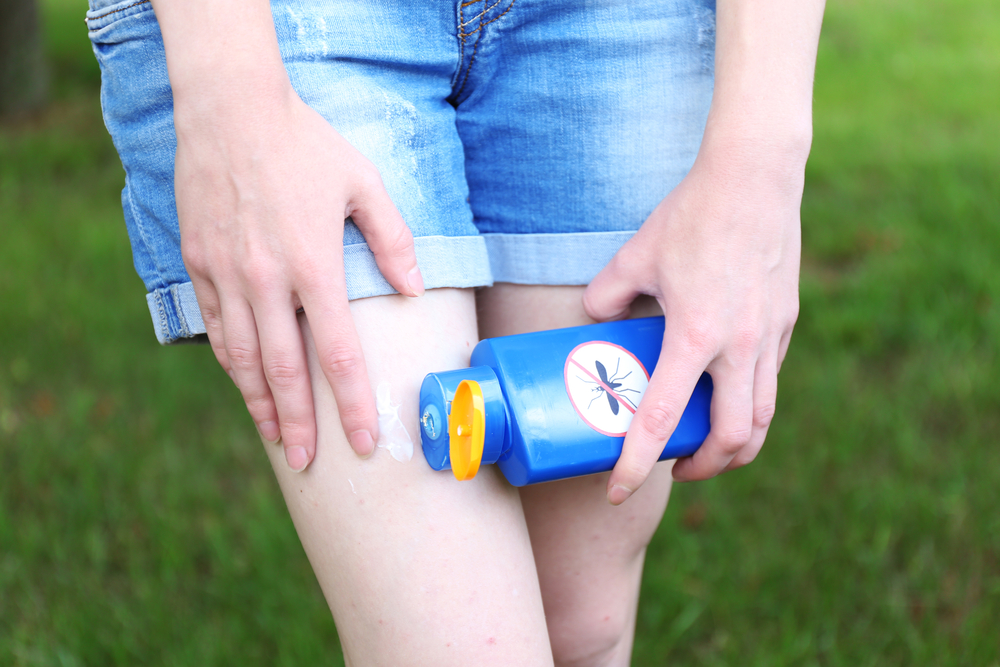Some people taste particularly yummy to mosquitoes. Unfortunately, I am one of them. My mom used to tell me that I was sweeter than other kids, and that’s what I was attacked all summer long. This was little solace. I would rather be bitter tasting and not covered with itchy welts all summer!
What’s interesting is I’ve found a magic trick that has helped for the last 5 years—pregnancy and breast-feeding. There must be some hormonal component to my ‘sweetness’ but when I am pregnant or breastfeeding I get bitten less often, though it picks right up again as soon as I am not. This summer, I am protected.
Whether or not you are particularly delicious to those pesky bugs, you want to make sure you are protected and your kids are too. Mosquito bites are uncomfortable, itchy and can make sleep more difficult. Mosquitoes and tics can cause illness such as West Nile and Lyme Disease. So let’s stay protected.
How best to avoid bites:
- Avoid outdoor activity between dusk and dawn
- Wear light colored long pants and shirts
- Tuck shirts into pants and pant legs into socks
- Keep kids covered with fine mesh netting when possible
- Get rid of standing water around your property, as this is where mosquitos live and breed
- Use insect repellent
What kind of repellent is safe?
All insect repellents are reviewed by a regulatory agency before they can be sold. Options include: DEET, oil of citronella, soybean, eucalyptus or lemon, p-menthane 3,8 diol (PMD), or icaridin/picaridin.
What is the best repellent?
DEET has been found to be the most effective product in preventing insect bites. DEET (N,N-diethyl-meta-toluamide) is a chemical that biting insects try to avoid. The amount of DEET in a product is listed as a percent. The higher the percentage of DEET, the longer the duration of protection from bites is.
Children 6 months to 2 years of age can use up to 10% DEET once a day. This should provide bite protection for up to 4 hours.
Children older than 2 years can use 10% DEET up to 3 times a day safely. Adolescents and adults can use products with up to 30% DEET. I recommend pregnant and breastfeeding mothers avoid DEET products until further research is conducted.
Alternative chemical repellents include 20% Icaridin/picaridin , which are considered safe in children over age 6 months. It can provide bite protection for up to 5 hours.
‘Natural’ repellents
I wish that natural repellents worked as well as DEET, but many studies show they don’t. Many natural products do not protect against tick bites. They may cause skin or eye irritation and many aren’t safe for use in children younger than 2 years.
Oil of eucalyptus should not be used in children younger than 3 years of age as it can be toxic. Citronella should not be applied to the skin of children younger than 2 years.
What can I put on my baby’s skin?
There are no known safe and effective insect repellents for children younger than 6 months. According to public health agencies in the United States and Canada, children younger than 6 months should avoid DEET use. Instead keep clothing long and light colored. Your child should be covered with a fine mesh cover when in a stroller or playpen.
How to apply bug repellent safely:
- Children younger than 10 years should not apply their own repellent.
- Only spray in a well ventilated area to avoid inhalation
- Don’t apply to your children’s’ hands, or spray near the eyes
- Do not spray on sunburned skin
- Ensure you also use sunblock during the day
- Reapply after swimming

Leave a Reply